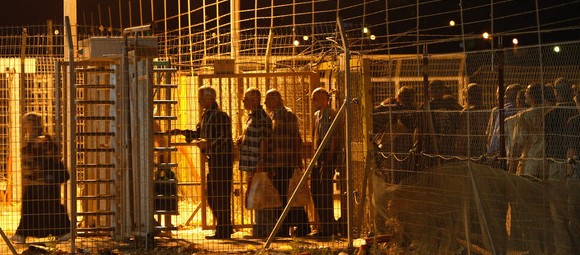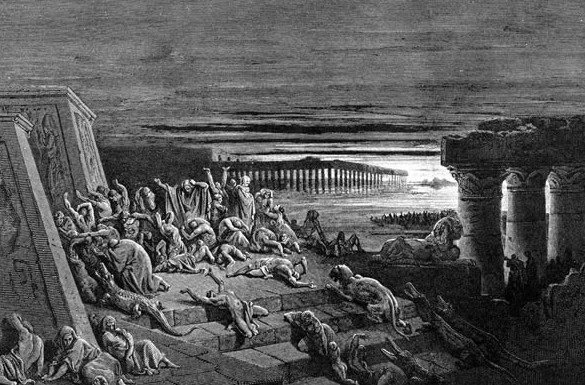
A commentary in Haaretz by Akiva Eldar opts for a Biblical theme with the headline: “The plague of darkness has struck modern Israelites.” But the observation in my headline comes directly from the text as Eldar bemoans the fact that Israeli prime minister Benjamin Netanyahu “simply refuses to see that the world is sick of us.”
A report from the BBC says US officials indicate the Obama administration would “seriously consider abstaining” if the issue of Israeli settlements was put to the vote in the UN Security Council.
This is one of the few threats Obama can make without needing Congressional support. And although this administration has not hesitated in making demands on the Israelis, it has thus far refrained from issuing threats. This could be a significant shift.
[T]he myopic Jewish state … has gone and collided head-on with the ally that offers existential support. Israel has become an environmental hazard and its own greatest threat. For 43 years, Israel has been ruled by people who have refused to see reality. They speak of “united Jerusalem,” knowing that no other country has recognized the annexation of the eastern part of the city. They sent 300,000 people to settle land they know does not belong to them. As early as September 1967, Theodor Meron, then the legal adviser to the Foreign Ministry, said there was a categorical prohibition against civilian settlement in occupied territories, under the Fourth Geneva Convention. Meron – who would become the president of the International Criminal Tribunal for the former Yugoslavia, and is now a member of the Appeals Chamber for both that court and a similar one for Rwanda – wrote to prime minister Levi Eshkol in a top-secret memorandum: “I fear there is great sensitivity in the world today about the whole question of Jewish settlement in the occupied territories, and any legal arguments that we try to find will not remove the heavy international pressure, from friendly states as well.”
It is true that for many years, we have managed to grope our way through the dark and keep the pressure at bay. We did so with the assistance of our neighbors, who were afflicted with the same shortsightedness.
On Sunday, however, the Arab League marked the eighth anniversary of its peace proposals, which offer Israel normalization in exchange for an end to the occupation and an agreed solution to the refugee problem, in accordance with UN Resolution 194. But Israel behaves as if it had never heard of this historic initiative. For the last year, it was too busy realizing its dubious right to establish an illegal settlement in Sheikh Jarrah in East Jerusalem. Prime Minister Benjamin Netanyahu, turning a blind eye to reality, has tried to persuade the world that what applies to Tel Aviv also applies to Sheikh Jarrah. He simply refuses to see that the world is sick of us. It’s easier for him to focus on his similarly nearsighted followers in AIPAC. Tonight they’ll all swear “Next year in rebuilt Jerusalem” – including the construction in Ramat Shlomo, of course.
Hillary Clinton is not Jewish, but it was she who had to remind the AIPAC Jews what demography will do to their favorite Jewish democracy in the Middle East. A few days earlier, she had come back from Moscow, where she took part in one of the Quartet’s most important meetings. Israeli politicians and media were too busy with the cold reception awaiting Netanyahu at the White House. They never gave any thought to the decision by the United States, the European Union, Russia and the United Nations to turn Palestinian Prime Minister Salam Fayyad’s state-building plan from a unilateral initiative into an international project.
The Quartet declared that it was backing the plan, proposed in August 2009, to establish a Palestinian state within 24 months. This was an expression of the Palestinians’ serious commitment that the state have a just and proper government and be a responsible neighbor. This means Israel has less than a year and a half to come to an agreement with the Palestinians on the permanent borders, Jerusalem and the refugees. If the Palestinians stick to Fayyad’s path, in August 2011, the international community, led by the United States, can be expected to recognize the West Bank and East Jerusalem as an independent country occupied by a foreign power. Will Netanyahu still be trying to explain that Jerusalem isn’t a settlement?
For 43 years, the Israeli public – schoolchildren, TV viewers, Knesset members and Supreme Court judges – have been living in the darkness of the occupation, which some call liberation. The school system and its textbooks, the army and its maps, the language and the “heritage” have all been mobilized to help keep Israelis blind to the truth. Luckily, the Gentiles clearly see the connection between the menace of Iranian control spreading across the Middle East and the curse of Israeli control over Islamic holy places.
Monday night, when we read the Passover Haggadah, we should note the plague that follows darkness. That may open our eyes.

 The headline for Aluf Benn’s article in
The headline for Aluf Benn’s article in 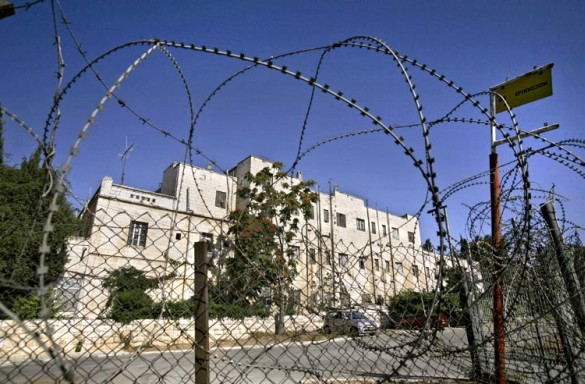
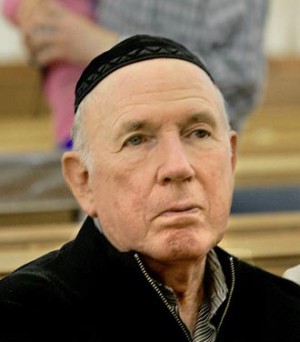 The Shepherd Hotel in the Sheikh Jarrah neighborhood was purchased by American Jewish tycoon Irving Moskowitz in 1985 for $1 million.
The Shepherd Hotel in the Sheikh Jarrah neighborhood was purchased by American Jewish tycoon Irving Moskowitz in 1985 for $1 million. 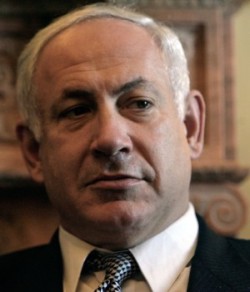 As Bill Clinton
As Bill Clinton 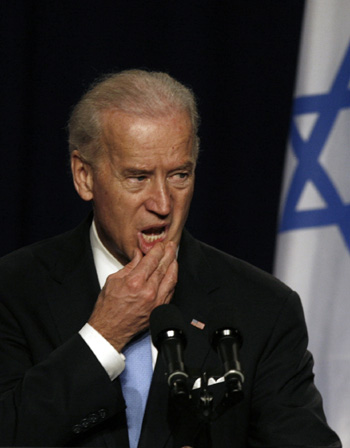 The apology offered by Prime Minister Benjamin Netanyahu and Interior Minister Eli Yishai recalls the joke about the servant who pinched the king’s bottom. En route to the gallows, the servant apologized: He thought it was the queen’s bottom.
The apology offered by Prime Minister Benjamin Netanyahu and Interior Minister Eli Yishai recalls the joke about the servant who pinched the king’s bottom. En route to the gallows, the servant apologized: He thought it was the queen’s bottom. 